I keep thinking about a growth mindset versus a fixed mindset. A fixed mindset asserts that your intelligence, talents, and personality are fixed traits that cannot grow. There’s no improvement, there’s no change. A growth mindset is the opposite – it’s a belief that your intelligence, talents, and personality improve and change over time. However, instead of only applying the growth mindset to myself, as in, my novel-writing skills will improve, I also apply it to how I approach the world.
My spiritual tradition is a tantra-oriented practice, which if you break down the literal definition of tantra means liberation through expansion. In practice, tantra uses everything as a vehicle for liberation. That means every situation, every struggle, every everything is an opportunity to move closer to the Divine Beloved or further away.
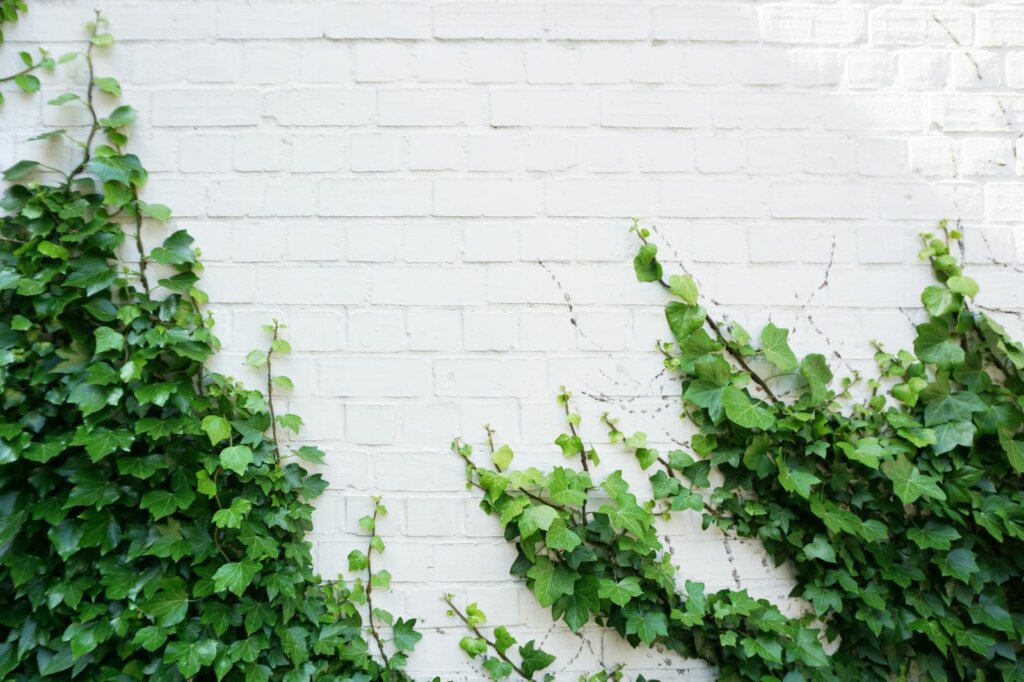
Grow, baby, grow! Photo by Victoria Strukovskaya on Unsplash
Here’s a silly, but perfect, example of how I use everything as a vehicle for liberation. In June 2016, I went to a cat café and none of the cats came up to me. I consider myself a cat person even though I don’t have one and usually, cats rub against me, want to sit on my lap, etc. But these cats didn’t and I was offended, especially because they came up to my friend. What the heck?!? Was she special and I wasn’t?!? Truly, it threw me into a tizzy and it’s what prompted my post, “You So Special.”
My interaction (or lack of interaction) with a random cat, once, spurred me to start affirming that I’m special and unique. It showed me that I was relying on other people to do that for me but using that method is like trying to fill up a colander with water – there are too many holes and the water will keep streaming out. I had to, and have to, give myself what I need first.
Bringing it back to tantra, my spiritual teacher says tantra is an all-around fight, both internally and externally. That means facing my fears, protesting injustice, and always asking, “How can I use this situation or experience to grow?” In my personal life, it also means becoming more accepting of whatever is in front of me because I understand it’s there for a reason and the reason is not to torture me.
My friend Ramesh Bjonnes, author of Tantra: The Yoga of Love and Awakening, wrote about this on Facebook in 2016 and I’m partially quoting him now. He said:
“In meditation, we do not deny anything, we actually become more accepting of everything, and in doing so, we realize where peace and true satisfaction is truly found – not in the fluctuating reality of the body and the mind, but in the stillness of the soul. And that stillness is so big that it contains everything, the only change is that our focus has changed, our identification has changed. It is from this state, we can more soulfully deal with pain, heartbreak, stress, and all the other stuff of life. This is the gift of meditation, to be able to dip into the ocean of the soul and thus return spiritually refreshed.”
Dipping into the ocean of the soul means taking a broader perspective. It means approaching life not from a fixed mindset of, “This will never change” or “I just need to find the right configuration of ____ to be happy.” It’s approaching life from a growth mindset of, “How can I grow from this situation? What can I learn?”
I dream of a world where we recognize we have a choice about how we approach life. A world where we understand we can view the things that happen to us from the standpoint of a victim or as something we have agency over. A world where we recognize we can grow from our experiences if we wish. A world where we have a different orientation toward the world that’s about moving us closer to the Divine Beloved.
Another world is not only possible, it’s probable.
Growing up, I was the weird kid because I didn’t fit in with my peers. I was a vegetarian in the 90s and my first-grade teacher announced to the class I didn’t eat meat because I was Jewish. (I think you know this but just in case, the two are not related.) I didn’t grow up in a bastion of diversity and understanding and that’s colored, well, a lot.
As an adult, I let my freak flag fly and usually have no problem standing out. I joke that my biography title should be: “Always the Outlier: The Rebekah Moan Story” because it’s true in 99% of cases that I’m the outlier. Over the past few weeks though, I notice parts of me are scared to be vulnerable and authentic. I realize a lot of people feel that way but that’s an unusual feeling for me. Normally, I don’t have a problem saying, “This is me. Here’s how I’m feeling,” but some parts of me feel terrified to do that because I’m worried people will run away screaming if I do.
When I shared that with a friend, she said, “Yeah because I haven’t seen the real you in our eight years of friendship.” I never said it made sense but that’s what wounding does. It makes us irrational. I’ve been ruminating over my experiences and a strong memory emerged from second grade when my music teacher went around the room and asked every child what their favorite music genre was. One by one, every child said, “country,” including me, even though I couldn’t name a country song to save my life. What I meant to say was “oldies” because that’s what my parents played around the house but I didn’t because the pressure to fit in was too great.
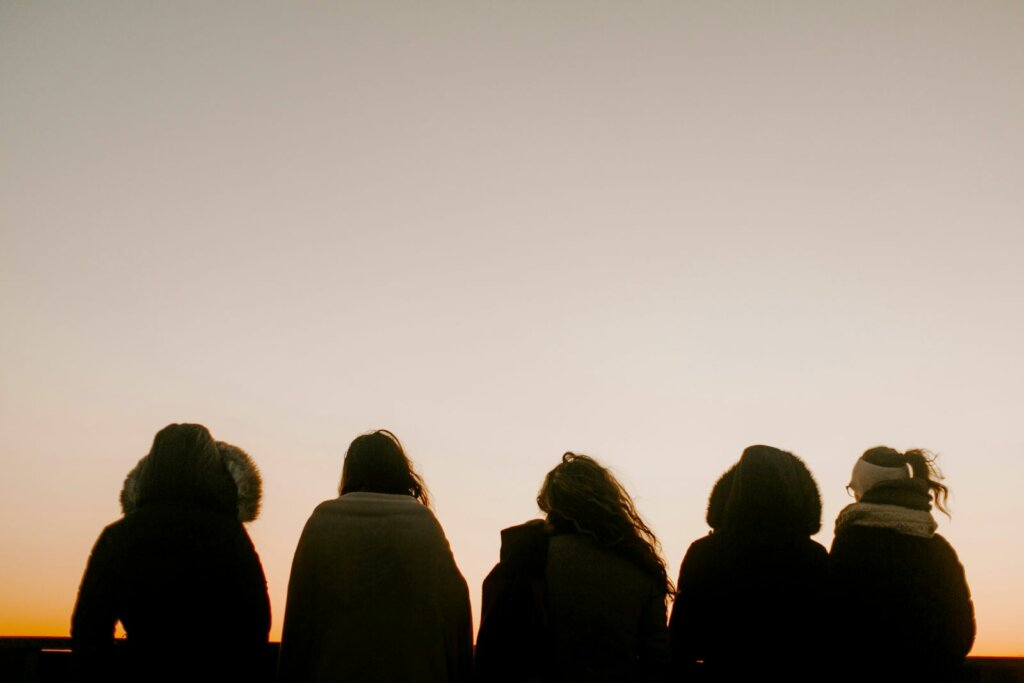
You belong somewhere, I promise. Photo by Annie Williams on Unsplash
Here’s the thing though – sure, in that setting every child said “country” but that doesn’t mean every child everywhere would have answered in the same way. I didn’t realize at that time I wasn’t weird, it’s more that I didn’t have anything in common with the people around me. That’s different. People who shared my interests existed in the world even if I didn’t go to school with them. What’s helping me to remember this is I organized a Zoom meetup for the young people in my spiritual community.
In our small group, we had people joining from London, Copenhagen, Moscow, and all over the U.S. Within the U.S., some people originally hailed from India, the Philippines, and Brazil. Only a handful of people live geographically close to me, which feels like the greatest gift, but also knowing there are people like me who live far away is a gift. It reminds me I do belong and there is a place for me. When I share that with the parts of me that feel like a weirdo, loser freak, they feel better too because I imagine a thread connecting me to each and every person in the world who is like me.
There’s a quote from C.S. Lewis who said, “Friendship is born at that moment when one person says to another: ‘What! You too? I thought I was the only one!’” Precisely. You’re not the only one even if sometimes it feels that way. You aren’t the only one even if the people around you are into different things. You already belong right here, right now and I hope you can feel that.
I dream of a world where we recognize someone, somewhere is into the things we’re into. A world where we remember that just because the people around us are into different things doesn’t mean we’re weird. A world where we recognize we may be far apart from the people who are most like us, but those people do exist. A world where we remember we already belong.
Another world is not only possible, it’s probable.
Even though I sync up better with the Jewish New Year, the Gregorian New Year still acts as a mile marker for me. I ask, “How does this year compare with last year? What did I think of this year? What happened?” When I contemplate 2023, I realize I couldn’t have predicted 99% of the things that transpired. I thought I knew what the future held but I didn’t, like, at all.
I want to predict the future to give myself a sense of safety. If I know what’s coming, I think I can prepare for it but I’m not sure you can ever truly prepare. For instance, you build up savings in case you lose your job but then you lose your job and it’s still discombobulating. Or your parent is on their deathbed and then they die and it’s still devastating. Can you ever prepare for what life brings you? Or can you only live it, one day at a time?

The future is like this. Photo by Maddy Weiss on Unsplash
I’m reminded of that famous Rainer Maria Rilke quote that says:
“I beg you…to have patience with everything unresolved in your heart and try to love the questions themselves as if they were locked rooms or books written in a very foreign language. Don’t search for the answers, which could not be given to you now, because you would not be able to live them. And the point is, to live everything. Live the questions now. Perhaps then, someday far in the future, you will gradually, without even noticing it, live your way into the answer.”
As we enter the Gregorian New Year, I’m living the questions. I keep searching for answers but the answers aren’t here yet because the future is still unfolding. There are still many unknowns for us mortals. At this point, you might be sick of reading poems on “Another World is Probable” but I’m sharing another poem! Here are three stanzas from John O’Donohue’s poem “For a New Beginning:”
In out-of-the-way places of the heart,
Where your thoughts never think to wander,
This beginning has been quietly forming,
Waiting until you were ready to emerge.
…
Though your destination is not yet clear
You can trust the promise of this opening;
Unfurl yourself into the grace of beginning
That is at one with your life’s desire.
Awaken your spirit to adventure;
Hold nothing back, learn to find ease in risk;
Soon you will be home in a new rhythm,
For your soul senses the world that awaits you.
There is a world awaiting us but we’re rising up to meet it. We’re living the future with all its question marks and unknowns. Life happens here, now. While I’m mulling over whether this thing will happen or that thing, my life continues. In the shadow of my friend’s death, I want to be present for what is, not what could be. And that means not worrying about the future and instead letting it unfold as it will.
I dream of a world where we have patience with the unresolved questions in our hearts. A world where we understand the future is mostly unknowable and so it’s better to be here, now. A world where we trust the promise of our life’s opening and the grace of beginning. A world where we let the future unfold.
Another world is not only possible, it’s probable.
Even though Passover is long over, I keep thinking about a story I heard. There’s a perception that during the exodus when God parted the Red Sea the Jews walked up to the water and tada! The water parted. However, Jewish teachings state that’s not what happened. The Jews waded into the water up to their knees and nothing. They kept going up to their waists and still nothing. Their chests, no change. The water came all the way up to their noses, meaning they could no longer breathe, and then the water parted.
So often when it comes to miracles, I want them to happen immediately, before I feel any pain. I want the Disney-fied version of events where there’s minimal struggle and I’m plodding along and everything is easy peasy. Sometimes life is like that, but oftentimes it’s not. Oftentimes, higher power waits until the last possible second to deliver a miracle. What to do? Keep moving with faith.
I’ll be honest, if I was escaping Egypt and kept wading into the water without being able to swim and not having a flotation device, I probably would have turned back. I don’t think I would have kept going. I would have acted from a place of fear and not experienced a miracle. I would have done the opposite of what Rumi advises which is, “Move, but don’t move the way fear makes you move.”
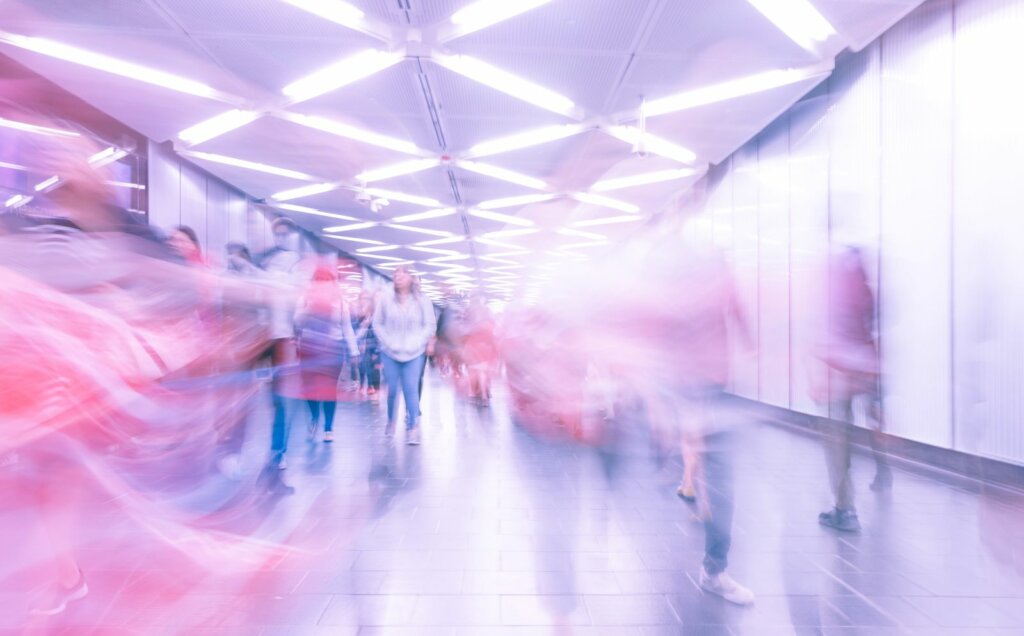
Even when it’s blurry, keep moving. Photo by Martin Adams on Unsplash
I often move the way fear makes me move, especially when it comes to money. Bank balance running low? Better apply for a million jobs even if I’m not really interested! No new clients? Start contacting everyone and their mother! But that doesn’t work for me. Desperation rarely does.
The question then, is how can I move with faith? What sort of decisions do I make when I believe things will work out? What if I truly believed the universe has my back, even if I don’t see any evidence until the last possible second?
From that place, I’m calmer, curious, and open. From that place, I remember the magic and the mystery of the universe. When I’m in faith, beautiful things can come out of the blue. I receive a random email or telephone call from someone looking for my ghostwriting or content writing services. I find a random object I’m looking for, such as Play-Doh, on the side of the street for free.
Tosha Silver writes in her book Outrageous Openness if you think of the Divine as your ultimate protection and your Source for everything, “Then the Universe can use anything it wishes to meet your needs. You’re no longer limited to what your conditioned mind thinks is possible.” She has countless stories of this happening in her life and in the lives of others. For instance, she found an apartment through a hairdresser and someone else found a literary agent by bowling them over in a yoga class. Fear leads us to believe we must force things; we have to make them happen. Trust and faith show us we can relax and be shown the next steps on our path. In other words, faith causes us to move differently.
I dream of a world where we soothe our fearful parts when they’re freaking out. A world where we understand what’s ours is ours and will show up at the perfect time in the perfect way. A world where instead of moving from a place of fear, we move from a place of faith.
Another world is not only possible, it’s probable.
Members of my community are at the age where they’re starting to die. It seems like every three months or so someone passes away. Some people I’m closer to than others, but regardless, each death leaves an impact.
Have you ever played that game where you stand in a circle and hold a piece of yarn while also throwing it to someone else in the circle? In the end, you wind up with a giant web that connects every person to everyone else. That’s what I think life is like. When someone dies, the metaphorical yarn is tugged and creates a ripple effect so everyone feels it, some more deeply than others. As for me, there are layers of grief. There’s the grief I feel from the person’s death, but there’s also the grief I feel for their family members, their friends, their colleagues. There’s up-close-and-personal grief and there’s also more removed grief.
In my spiritual community, we have a ceremony to honor the passing of people. It’s purely for the mourners, meaning we don’t believe the ceremony has any effect on the recently deceased person. One of the things we say in tandem is, “You have freed us today from all the social responsibility we bore toward our dearest so-and-so.” At one point we all pour water into our palms from the same pot and take a sip from our cupped hands. It’s the bookend to a baby naming ceremony.
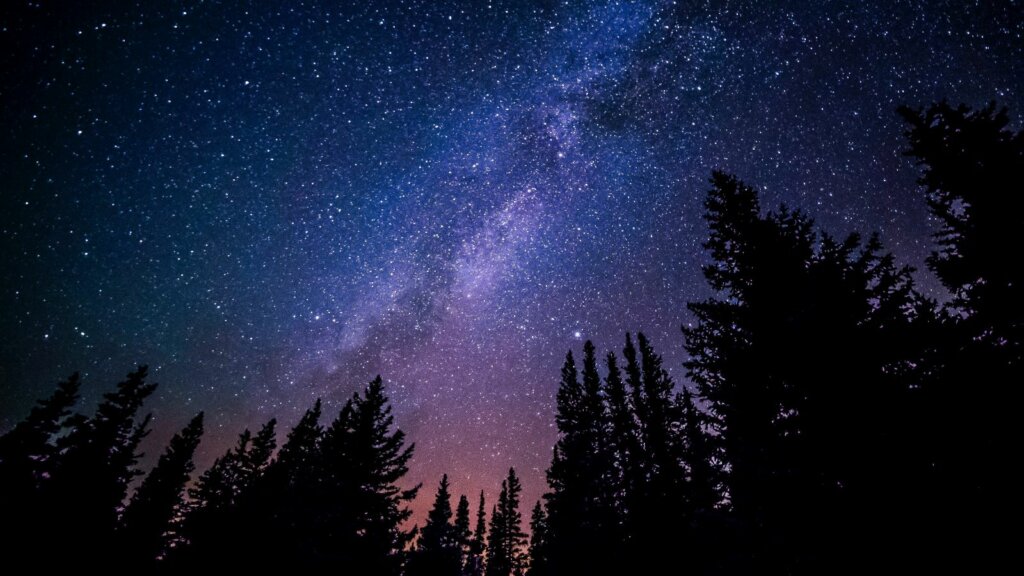
This picture will make sense later in the post. Photo by Ryan Hutton on Unsplash
With the baby naming ceremony, we are pledging responsibility to the baby symbolically by adding water into a tub, and with the mourning ceremony, we are taking it away. While the responsibilities are gone, the impact is not. Facebook is showing me pictures from a conference I used to go to in Vienna, Austria, every year. A few of those photos include Eric, a coworker who died years ago. It’s been many years since his passing, and we weren’t close, but every time I see his photo, my heart hurts a little, remembering he’s no longer with us.
I don’t have anything profound to say other than every person who is gone is not forgotten. We carry them with us in our hearts and they’re with us in another form. I’ll close here with an edited excerpt from writer and performer Aaron Freeman who in 2005 explained on NPR why you want a physicist to speak at your funeral:
“You want a physicist to speak at your funeral because they’ll explain to your grieving family about the conservation of energy, so they will understand that your energy has not died. You want the physicist to remind them about the first law of thermodynamics; that no energy gets created in the universe, and none is destroyed. All your energy, every vibration, every BTU of heat, every wave of every particle that was you remains in this world. The physicist will tell your mourners that all the photons that ever bounced off your face, all the particles whose paths were interrupted by your smile, by the touch of your hair, hundreds of trillions of particles, have raced off like children, their ways forever changed by you.
The physicist will them the warmth that flowed through you in life is still here, still part of all that we are, even as we who mourn continue the heat of our own lives. The physicist will explain to those who loved you that they need not have faith; indeed, they should not have faith. The physicist will let them know that they can measure, that scientists have measured precisely, the conservation of energy and found it accurate, verifiable, and consistent across space and time. Your energy’s still around. According to the law of the conservation of energy, not a bit of you is gone; you’re just less orderly.”
I dream of a world where we remember every person’s death creates a ripple on the spider web of life. A world where we understand a person may be gone, but they aren’t forgotten. A world where we remember when a person dies, their energy is still around us, and not a bit of the person is gone, they’re just less orderly.
Another world is not only possible, it’s probable.
Whenever I share about my upcoming Australia trip, people are genuinely happy for me. I’m taken aback because sharing good news, especially over social media, seems perilous these days. A year or so ago, Glennon Doyle shared a video of her singing on a boat with her friends and family. The next day, she had the single-largest drop in followers her entire time on Instagram. She posited it’s because there’s something triggering about seeing women, especially, happy. That perhaps we’re more comfortable with their pain and suffering.
More recently in October, Daisey Miller shared a tweet that said, “my husband and i wake up every morning and bring our coffee out to our garden and sit and talk for hours. every morning. it never gets old & we never run out of things to talk [about]. love him so much.” Some responses were positive but many were scathing and called her out for being privileged and presumably wealthy. There was an assumption Miller didn’t work and had minimal responsibilities.
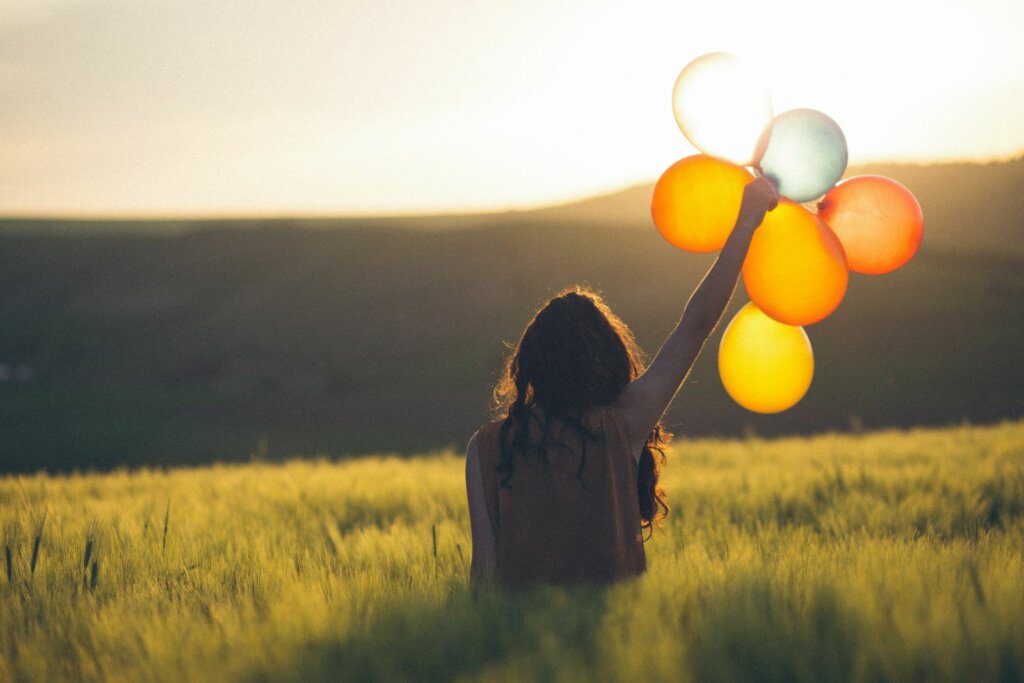
Happiness increases when it’s shared. Photo by Catalin Pop on Unsplash
In other words, instead of celebrating Miller’s quality time with her husband, people tore her down and mocked her. Numerous people tweeted their own versions: “my husband and i wake up every morning and go out to our garden and swordfight for hours. every morning. it never gets old & we never run out of ways to duel and spar. love him so much,” or “my husband and i wake up every morning and go out to our garden and we kill each other with our bare hands because we are miserable and we both have crabs.”
Those that didn’t mock her showcased self-righteousness, which is the conviction that one’s beliefs and behaviors are the most correct. As John Mark Green puts it, “The self-righteous scream judgments against others to hide the noise of skeletons dancing in their own closets.” Twitter is rife with self-righteousness and a hotbed of schadenfreude, a compound of the German words schaden, harm, and freude, joy. It means deriving pleasure or joy from someone else’s suffering or misfortune.
Brené Brown writes in her book Atlas of the Heart that schadenfreude is “seductive. Especially when we’re sucked into groupthink. It’s easy to build counterfeit connection with collective schadenfreude. I say ‘counterfeit’ because when we see someone who we don’t like, we disagree with, or is outside our group stumble, fall, or fail, it’s tempting to celebrate that suffering together and to stir up collective emotion.”
I mean, I get it. I’ve felt schadenfreude from time to time. But that doesn’t mean schadenfreude has to dominate your life. The antidote to schadenfreude is freudenfreude, a word made up by an American psychologist that literally translates as “joy joy.” It’s letting yourself feel vicarious joy for others. When we share our joy, our joy increases. The Buddha stated this well when he said, “Thousands of candles can be lighted from a single candle. Happiness never decreases by being shared.”
I have to remind myself of that because I worry by sharing my good news people will judge me, one-up me, or try to tear me down. Thus far they haven’t, probably because I’m not famous and I don’t surround myself with jerks. It could also be that I engage in freudenfreude regularly. I really and truly celebrate when others celebrate. Seeing their joy brings me joy and perhaps that’s why it’s coming back to me. Together, we are multiplying happiness.
I dream of a world where we celebrate each other’s wins. A world where we practice freudenfreude more than its opposite. A world where we remember happiness doesn’t decrease when it’s shared, instead it’s multiplied.
Another world is not only possible, it’s probable.
My dad told me about a TV show where people try to be the last person to survive in the woods on their own for a chance at winning $500,000. The premise is interesting because it touches on the themes of competition, human versus nature, and also resourcefulness. I get the appeal. But what I don’t get is the lengths people will go to in order to win.
One contestant swam into a frozen lake in an attempt to catch some fish knowing she’d get hypothermia. She explicitly told the camera she knew that would happen. The woman could have tapped out of the show at any time and said, “You know what? The $500,000 isn’t worth it. Take me to the grocery store,” but she didn’t. She literally risked her life all for what? Money. Money that frankly won’t last very long considering the rate of inflation.
Desperation is real and it pushes people to do things they otherwise wouldn’t. But this woman wasn’t a member of the Donner party, starving to death in the middle of winter. She was in a situation of contrived and self-inflicted desperation. I don’t fault this woman; I don’t know her or her story. She made her choice freely. No, instead what I fault is the toxic worldview pervading our society that lauds this sort of decision: materialism.
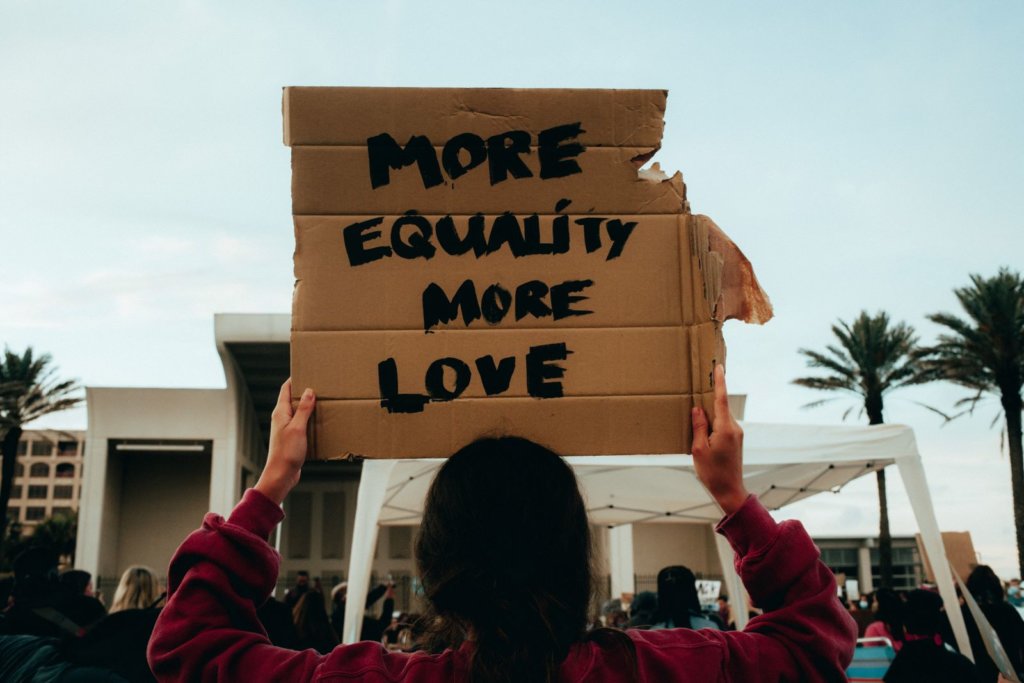
I agree! More equality, more love! Photo by Cody Pulliam on Unsplash
My favorite summary of materialism comes from a friend who says, “Under materialism, only matter matters.” Exactly. In a materialistic society, money and possessions are more important than love, community, and life. Not everyone is willing to become hypothermic for cash, but over and over again, we demonstrate human life isn’t worth more than money in indirect ways: child labor, exploitative working conditions, polluting the environment, etc. We are poisoning and killing one another for something ephemeral.
I’m not here to say money is unimportant because that’s a lie. It is important, but it’s not the only thing that matters. The worldview I use stems from tantra and my friend sums it up by saying, “Under tantra, everything matters.” What he means is matter matters. People matter. The environment matters. Spirituality matters. Under tantra, you take it all into account. Money is not the bottom line every time.
We take it for granted that materialism is the only way to operate in the world but it’s not. It’s a belief system and belief systems can change. A little religious inspiration for you that’s appropriate considering this time of year: Hanukkah isn’t really a story about oil lasting for eight days. It’s the celebration of people unifying against oppression and winning.
A quick recap: Judah and the Maccabees revolted against Syrian King Antiochus in 160 BCE. He enacted a series of harsh decrees against the Jews, including forcing them to give so much of their crops to the Syrian ruling class, the Jews had trouble feeding their families. Jewish worship was forbidden; scrolls were confiscated and burned. Sabbath and dietary laws were prohibited under the penalty of death. This small group of Jewish rebels fought against an army of thousands of men and won.
My rabbi, Michael Lerner, says, “Hanukkah is not just about having a response to the consumption craze around Christmas, it is about affirming a different worldview, a hopeful worldview. [It’s] about replacing cultures of domination with a culture of love and justice.”
We already have examples of worldviews toppling. We know it can be done because it’s been done before. We don’t need to keep operating as if materialism is the only game in town because it’s not. There’s another way to live, a better way. One in which we recognize the importance of bodies, minds, and spirits.
I dream of a world where we topple materialism. A world where we say, “No, materials are not the most important thing in existence.” A world where we recognize the existential value of all life forms. A world where we replace a culture of domination with one of love and justice.
Another world is not only possible, it’s probable.
I learned something fascinating recently: The idea male and female wolves compete to become dominant within packs is inaccurate. This competition only occurs in zoos and not in the wild. In 1944, Rudolph Shenkel, a biologist, first observed this behavior of vying for dominance in wolves at a German zoo but in the subsequent years, David Mech studied wolves in the artic and found wolf packs are families. In other words, the “alpha male” is the dad and the “alpha female” is the mom. The rest of the pack follows their lead because they’re the offspring, not because they fought a battle and lost.
While I find this little tidbit interesting, what intrigues me more is why the idea of the alpha male and female continues to percolate in our society. I think it’s because we want to use nature as an excuse for why we do the things we do and in a patriarchal, capitalistic society, an alpha is paramount.
In a patriarchal society, men and so-called masculine traits are at the top of the hierarchy. Under patriarchy, we value strength, power, and force. The strongest, most powerful are lauded and anyone or anything considered weak and feeble is disparaged. Men are at the top of the ladder and women are at the bottom, but it’s a continuum so while men who are perceived as more feminine are looked down upon, they are still above women in the power structure.
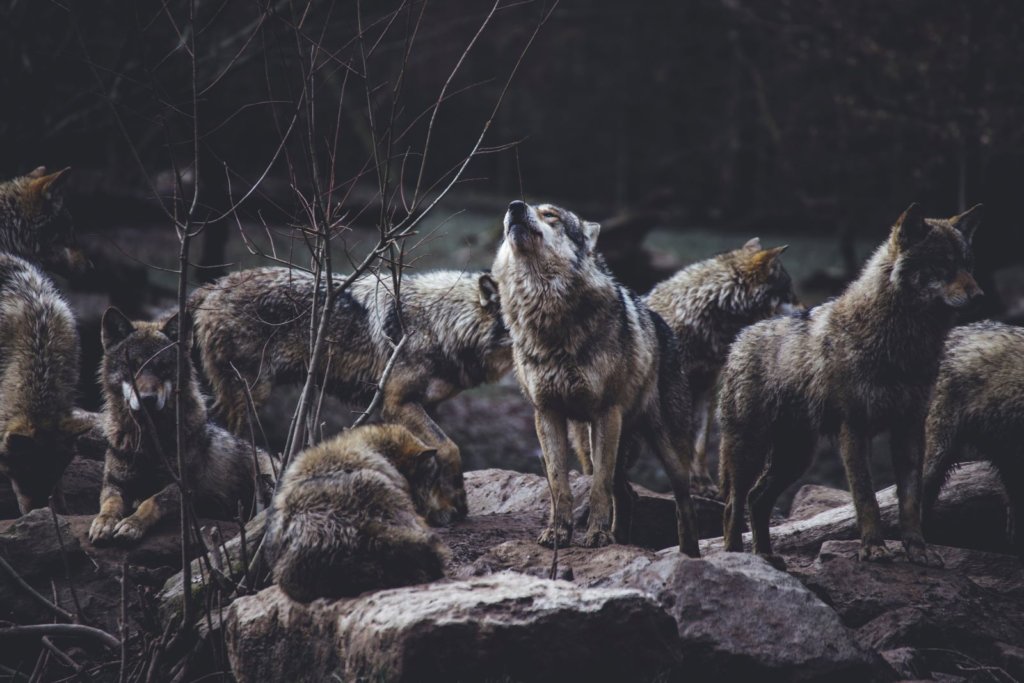
No alphas. Only parents. Photo by Thomas Bonometti on Unsplash
Through that lens, of course the idea of an alpha male is appealing because an alpha male is the epitome of what we praise under patriarchy. Capitalism feeds into the idea of the alpha because under capitalism, there’s the idea only one person can be in charge. Capitalism operates under a scarcity model – if there’s more for you, there’s less for me. That applies to not only money but power, resources, you name it.
We try to point to nature to say, “See? What we’re doing is only natural,” but over and over again, nature shows us collaboration is the name of the game. For instance, neighboring trees help each other through their root systems either directly, by intertwining their roots, or indirectly, by growing fungal networks around the roots that serve as a sort of extended nervous system. German forester Peter Wohlleben said, “If every tree were looking out only for itself, then quite a few of them would never reach old age.”
Also, bonobo females make lasting friendships and don’t tolerate aggressive males; the friendliest bonobos are always the ones with the most offspring. Ants and bees work together to make colonies and hives. I could keep going because examples of collaboration are endless. Instead of saying what we humans are doing is natural, it’s time to recognize we’re the anomaly. If we want to thrive as a species, we must cooperate with one another.
To quote my spiritual teacher, “Only the cooperative system can ensure the healthy, integrated progress of humanity, and establish complete and everlasting unity among the human race. People should work to enjoy sweeter fruits by establishing the cooperative system.”
Let’s enjoy those sweet fruits and start by retiring the mode of living like an alpha. Instead, let’s continue to take our cues from wolves and live like a universal family.
I dream of a world where we recognize the idea of an alpha male and an alpha female has outlived its usefulness. A world where we understand nature shows us over and over again that to survive and thrive we’re better off cooperating with one another. A world where we continue cooperating because we care about the progress of ourselves and the rest of humanity.
Another world is not only possible, it’s probable.
I learned something interesting recently. If people think they’re supposed to help someone else, they will. If they don’t think it’s their responsibility, they won’t help. There’s a widespread misconception floating around about the bystander effect, which is when people are less likely to intervene during emergencies when others are present and witnessing the same situation. In 1968, John Darley and Bibb Latané conducted an experiment that simulated an emergency.
Study participants were told they would be discussing their experiences in college with other participants. Each person was told either one, two, or five other participants would be chatting with them, but in separate rooms. The other “participants” were prerecorded voices that were played at points throughout the experiment. During the discussion, the person would hear one of the other “participants” call for help while having a seizure. The study measured the time it took for each participant to respond to the emergency.
The researchers found participants who believed they were speaking with one other person intervened at a much higher rate than those who believed others, in addition to themselves, were a part of the discussion. Psychologists have interpreted that to mean people freeze when they’re in a group because they think someone else will help instead of them. However, in 2015, Kenneth Brown at the University of Iowa gave a Tedx talk about how the bystander effect is complicated.
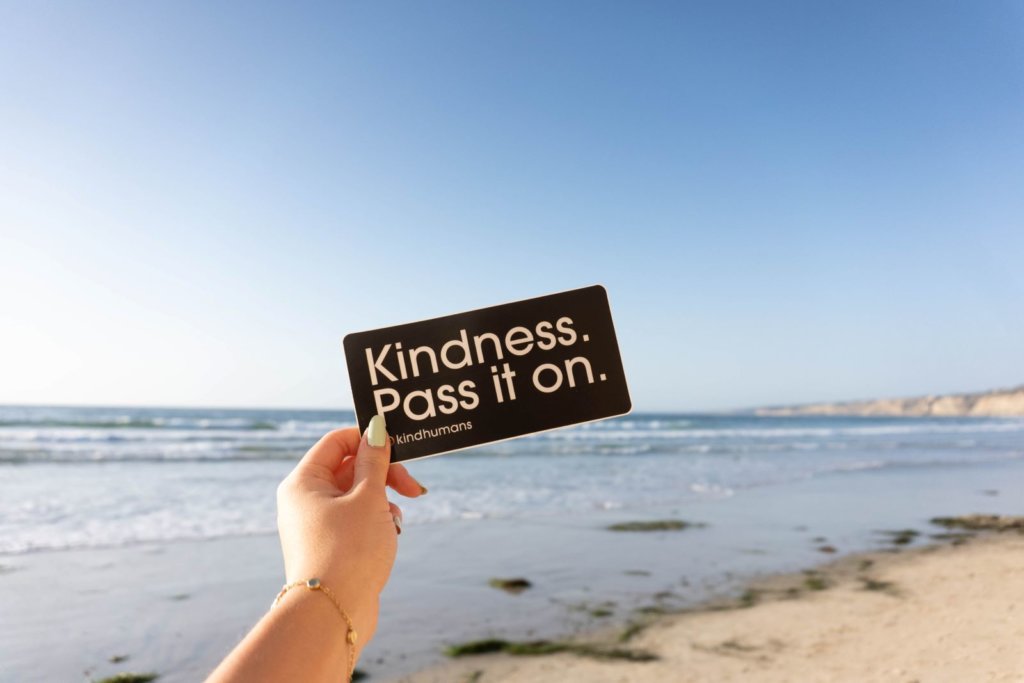
Kindness can spread. Photo by Mei-Ling Mirow on Unsplash
In his psychological studies, he found when subjects were told it was OK to help if something was wrong, that they wouldn’t ruin the study by doing so, the participants sprang into action when help was needed. There was no longer diffusion of responsibility and gone are the questions, “What does the researcher expect of me? What will happen if I step forward?” If it’s clear helping with something is what people are supposed to do, they do it.
This got me thinking about myself, naturally. I’m the type of person who will shout at a bus driver to wait for a fellow passenger. I don’t even think about it. It’s practically involuntary. On Saturday, I saw a man struggling with a small amp, a backpack, and a posterboard so I asked him if he needed any help (he did). Why do I do these things? Is it because I’m inherently a good person? No. I do these things because as a part of my spiritual practice, every morning upon awakening I say three oaths. One of them is I will help others according to my capacity.
By starting every morning with this thought in mind, I inherently believe it’s my responsibility to help out when and where I can. I haven’t conducted a study to determine whether other members of my spiritual community feel and act in the same way, but I can say for certain my family operates this way.
One time in Chicago my sister and I witnessed a man and woman fighting in the street perpendicular to us. Rosie stopped in her tracks and when I asked her why, she said, “I’m waiting to see if that woman needs help.” After my mother’s medical school graduation, we came upon a man lying in the street with a cut on his forehead who was semi-conscious. After we determined another bystander had already called 911, my mom ripped off her graduation gown and placed it over the top of him to keep the guy from going into shock. (She didn’t have any medical equipment on her so that’s all she could do.)
These are only a few of the incidents I know about. There are also the regular occurrences of help, like how my dad will do free tax work for certain clients, or my brother won’t charge for website design to help out a worthy person or cause. My brother and sister aren’t active members of my spiritual community, but they grew up in the same household I did where service was emphasized. It has me wondering what the world would be like if everyone saw it as their responsibility to help others according to their capacity.
Amelia Earhart says, “No kind action ever stops with itself. One kind action leads to another. Good example is followed. A single act of kindness throws out roots in all directions, and the roots spring up and make new trees. The greatest work that kindness does to others is that it makes them kind themselves.”
I dream of a world where people are kinder to each other. A world where we understand in order for that to happen, we each must take responsibility for helping others to the best of our capacity. A world where we understand kindness is contagious and we do our part to pass it on.
Another world is not only possible, it’s probable.
I feel unsettled after learning what happened to novelist Salman Rushdie on Friday. If you’re unaware, he was stabbed as he prepared to give a lecture in upstate New York. He suffered wounds to the neck and abdomen and is thankfully on the road to recovery, according to his agent.
It’s believed the attack is in connection to Rushdie’s late-80s book The Satanic Verses, which many Muslims consider blasphemous as it mocked or at least contained mocking references to the Prophet Muhammad and other aspects of Islam. There’s also a character based on the Supreme Leader of Iran and after it was published, Iranian leader Ayatollah Ruhollah Khomeini issued a fatwa, or edict, calling for Rushdie’s death.
I’m upset by multiple things. One, the stabbing occurred during a lecture, an event you would think was safe and peaceful. Two, multiple people were so enraged by words, not actions, words, they sought to kill someone. That’s pretty intense. And problematic because to quote Rushdie, “The moment you say that any idea system is sacred, whether it’s a religious belief system or a secular ideology, the moment you declare a set of ideas to be immune from criticism, satire, derision, or contempt, freedom of thought becomes impossible.”
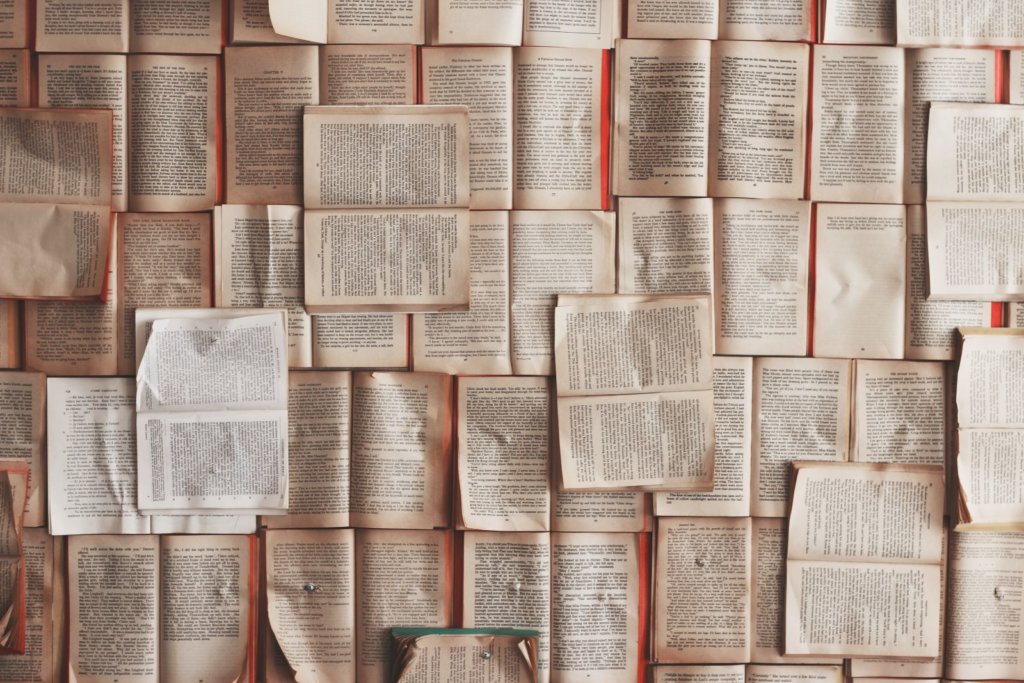
Critical thinking is key. Photo by Patrick Tomasso on Unsplash
Freedom of thought becomes impossible because instead, people sink into dogma. Dogma is thinking without logic or reasoning. And once a person does that, they start doing something because someone else told them to, which is dangerous because they can become easily manipulated by others. They fall prey to schemes and cause real harm to themselves and others.
Dogma can also be the reverse, by the way. It can be disregarding what a certain person, group, or organization says just because of their identity. My spiritual teacher says, “[D]ogma has had an extremely negative influence on ordinary people .… By arousing narrow sentiments, the adherents of dogma hope to fulfill their selfish aspirations … The followers of dogma do not want people to tread the path of rationality … The worst propounders of dogma – the kings of dogma – do not want people to develop mental clarity. They do not want the penetrating illumination of the sun’s light to pierce through the mists of dogma. They do not want people to bathe in the radiant light of the day and stand under the clear, unclouded sky.”
It’s also the case we fall prey to dogma internally, without someone acting as a puppeteer. We see this on social media with “stans,” or super fans that are overzealous and obsessive. They think the person they follow can do no wrong, and when the person inevitably makes a mistake, because, hi, they’re human, some stans dig their heels in and defend the person. People who aren’t super fans will engage in a takedown and explain why the person is trash and should be “canceled” or stop receiving support. From Merriam-Webster, “The reason for cancellation can vary, but it usually is due to the person in question having expressed an objectionable opinion, or having conducted themselves in a way that is unacceptable so that continuing to patronize that person’s work leaves a bitter taste.”
I understand that reaction and sometimes I think it’s warranted. However, this approach misses nuance. Every person is both a hero and a villain. Every person is capable of good and evil. It doesn’t make sense to follow a person as if they are an infallible, perfect human being. I know it’s funny to quote my spiritual teacher again here, but even he said, “Even if a young boy says something logical, it should be accepted, and if the Supreme Creator Brahma says something illogical, it should be rejected as rubbish.”
I agree. Use your brain. Dogma can be alluring because it’s easy and doesn’t require effort, but you have a brain and if you don’t use it, that’s not beneficial for anyone.
I dream of a world where we recognize no idea, person, or belief system is above scrutiny. A world where we don’t accept someone else’s words hook, line, and sinker, no matter who they are. A world where we use logic and reason to make the world a better place and bathe in the radiant light of the day.
Another world is not only possible, it’s probable.